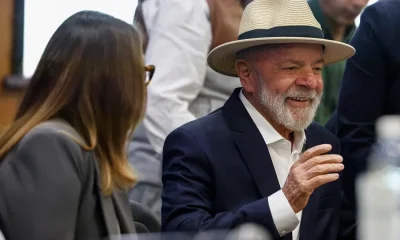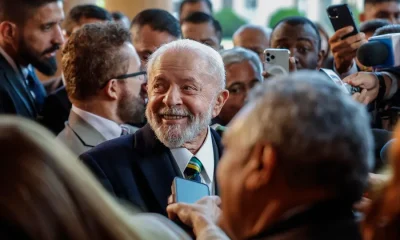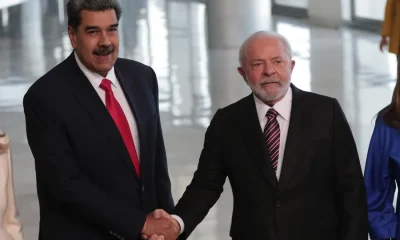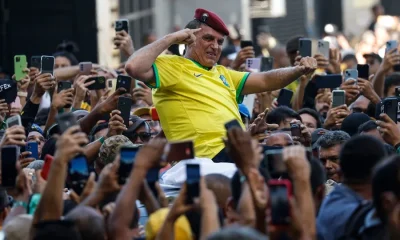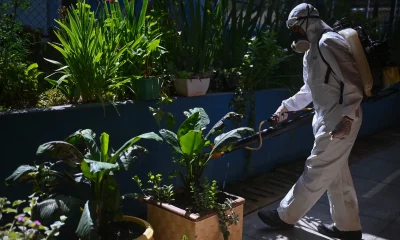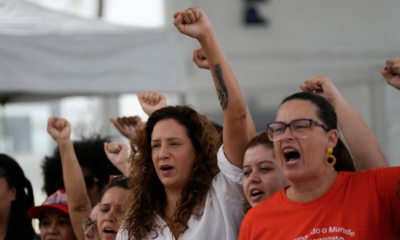International
‘Brazil is back,’ Lula hails at Latin America leaders summit
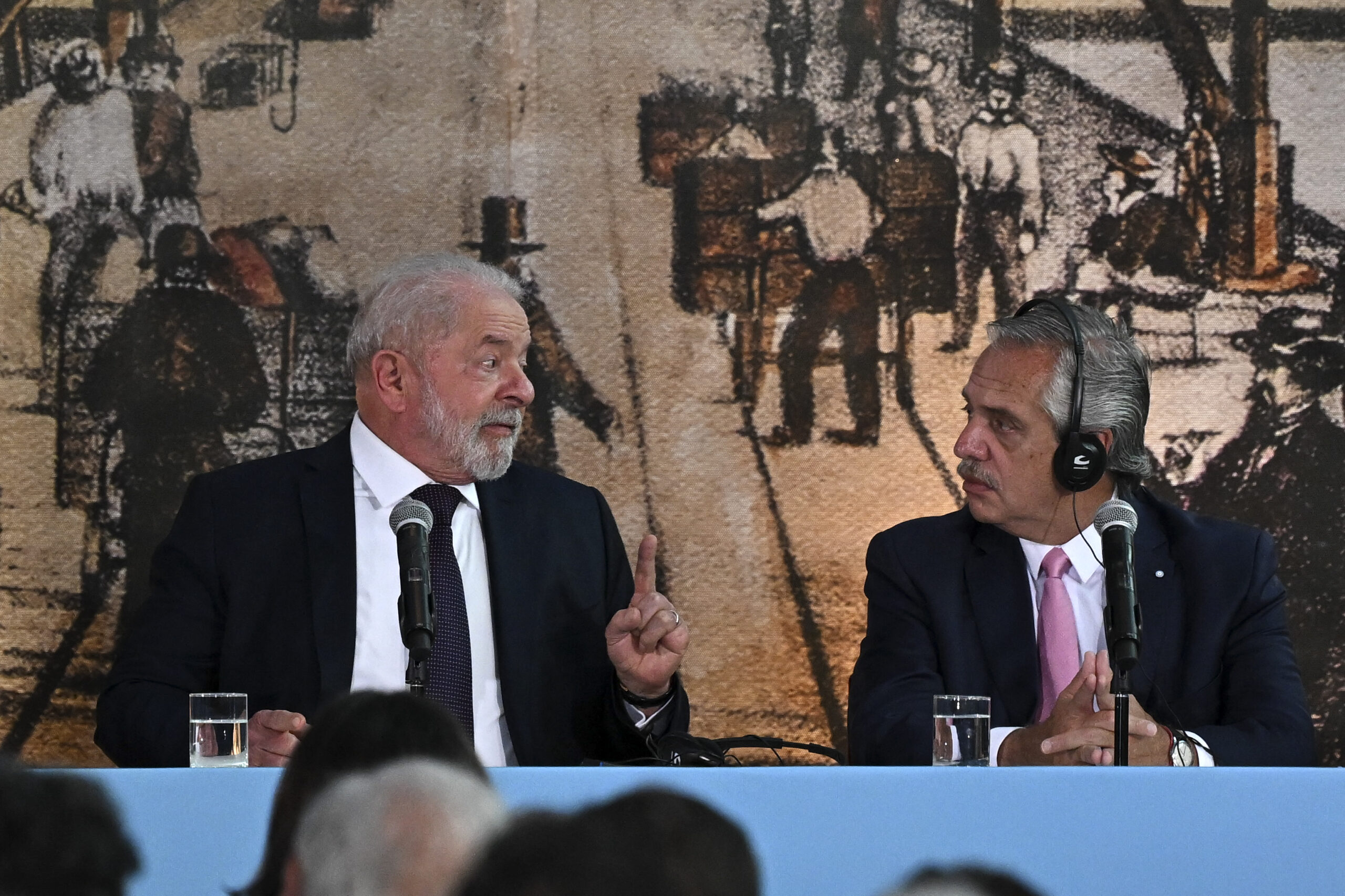
January 25 | By AFP | Philippe Bernes-Lasserre / Mauricio Rabuffetti |
Brazilian President Luiz Inacio Lula da Silva declared Tuesday that his country is “back in the region” after joining more than a dozen other Latin American leaders at a summit in Buenos Aires.
Less than a month after his inauguration, Lula arrived in the Argentine capital looking to rebuild bridges after his far-right predecessor Jair Bolsonaro had pulled out of the grouping.
“Brazil is back in the region and ready to work side-by-side with you with a very strong feeling of solidarity and closeness,” said the 77-year-old leader during the seventh Community of Latin American and Caribbean States (CELAC) summit, which brings together 33 nations.
Lula, who previously served as Brazil’s president from 2003-10, was one of the founders of CELAC during the first “pink wave” of leftward political shifts on the continent over a decade ago.
But Bolsonaro pulled Brazil out of the group over what he perceived as its support for undemocratic governments in Nicaragua, Venezuela and Cuba.
Lula spoke Tuesday about the “multiple crises” affecting the world — from the pandemic to climate change, geopolitical tensions, food insecurities and threats to democracy.
“All this happens in the midst of an unacceptable rise in inequality, poverty and hunger,” said Lula, the only leader to publicize his speech at the summit.
Democracy and its threats — especially from the far right — were a central theme of the summit.
“We cannot allow the recalcitrant and fascist far right to put our institutions and our people in peril,” said the host of the forum, Argentina’s center-left President Alberto Fernandez, in opening remarks.
He pointed to the riots by Bolsonaro supporters at the seats of power in Brasilia earlier this month and the alleged attempt to assassinate his vice president, Cristina Kirchner, in September.
But Fernandez made no mention of communist Cuba or the accusations of political oppression made against radical leftist regimes in Venezuela, Nicaragua and Bolivia.
In fact, with Cuban President Miguel Diaz-Canel in attendance, Fernandez called for an end to the US-led blockade of Cuba and Venezuela.
They are “a perverse method of punishment, not of the governments but of the people,” Fernandez said.
‘Latin America is bankrupt’
Host Argentina this week hailed a “new climate in Latin America,” with the region ushering in a fresh wave of left or center-left governments since 2018 — including Mexico, Argentina, Honduras, Chile, Colombia and Brazil.
A forum for consultation and cooperation, CELAC has no power to enforce any agreements between its members.
And while Fernandez stressed the need to “strengthen the institutions in our region,” CELAC is struggling to unite members over successive regional crises, such as in Peru.
“Latin America is bankrupt from the institutional point of view,” Ignacio Bartesaghi, an international relations expert at the Catholic University of Uruguay, told AFP.
“There is not even certain basic consensus in Latin America, as on the difference between a democracy and a dictatorship,” he stressed.
“There are (at CELAC) presidents who do not even recognize each other,” he noted, alluding to situations such as Paraguay’s Mario Abdo Benitez, whose country broke diplomatic relations with Nicolas Maduro’s Venezuela in 2019.
‘Absence of dialogue’
Maduro called off his own trip to the gathering at the last minute, citing “a risk of aggression” from “the neo-fascist right,” a possible reference to some Argentine opposition politicians calling for him to be arrested on arrival.
He was due on Monday to meet with Lula, who instead held talks with Diaz-Canel.
He sent a message to the forum blasting the “criminal sanctions” against his government, in particular against the state oil company PDVSA.
Other significant absentees in Buenos Aires include Mexico’s left-wing President Andres Manuel Lopez Obrador, leader of the second largest economy in Latin America and host in 2021 of the last CELAC summit.
CELAC however remains the partner of choice for China and the European Union to negotiate when cooperating with the region.
But the last joint-EU summit was in 2015, highlighting the lack of regional consensus, says Bernabe Malacalza, researcher at the CONICET Argentine national research center.
In this sense, the return of Lula could give a boost to certain sub-regional issues, such as the free-trade agreement between the EU and the Mercosur group which comprises Brazil, Argentina, Uruguay and Paraguay.
The deal was finalized in 2019 but never ratified, due in particular to concerns about Bolsonaro’s environmental policy.
Lula has indicated a willingness to resume contacts.
Meanwhile, Uruguayan president Luis Lacalle Pou proposed a free-trade zone extending from “Mexico to the south of South America.”
International
7 in 10 mexicans born poor stay poor, new report finds
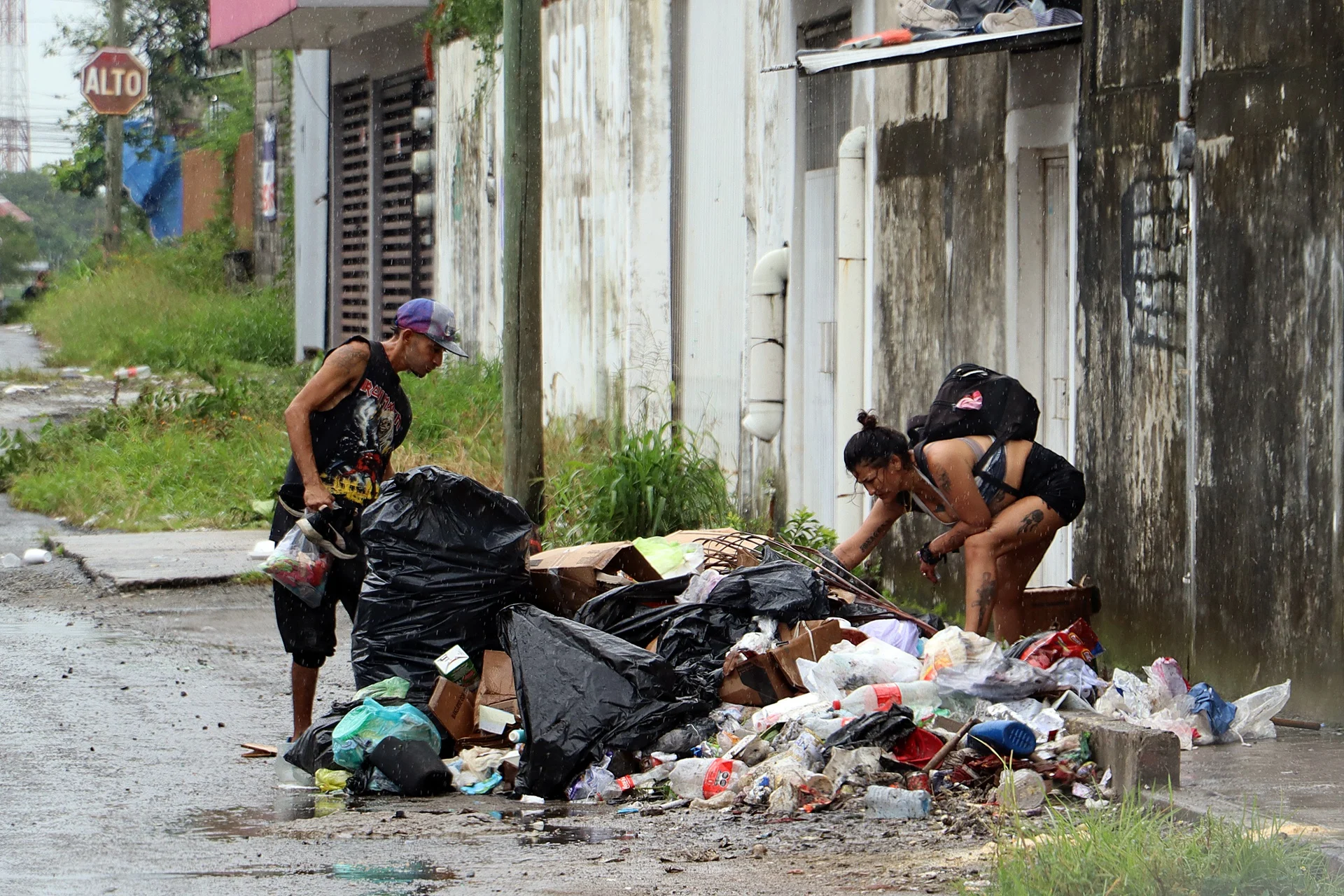
Seven out of ten Mexicans born into poverty remain poor throughout their lives, highlighting an urgent need for public policies focused on promoting social mobility through equal opportunity, according to civil society organizations.
The 2025 Social Mobility Report in Mexico, published by the Espinosa Yglesias Center for Studies (CEEY), reveals that 73% of individuals born into the bottom 20% of income households in Mexico — Latin America’s second-largest economy — continue to live in poverty based on income.
The report signals a worrisome stagnation in social mobility, defined as the ability of individuals to improve their socioeconomic standing compared to that of their parents. This lack of upward movement indicates that one’s economic origins are largely inherited, according to CEEY.
Geographically, disparities are stark:
-
In northern Mexico, 37% of those born in poverty remain there.
-
In the south, that number rises dramatically to 64%.
Gender gaps are also evident. Among those born in wealthier households, women experience less upward mobility, with a rate of 47% compared to 53% for men.
The report also notes that 48% of economic inequality in Mexico stems from inequality of opportunity — placing Mexico among the top ten countries with the highest opportunity inequality across 50 nations analyzed globally.
International
Spain hits record 46°C in June amid scorching heatwave
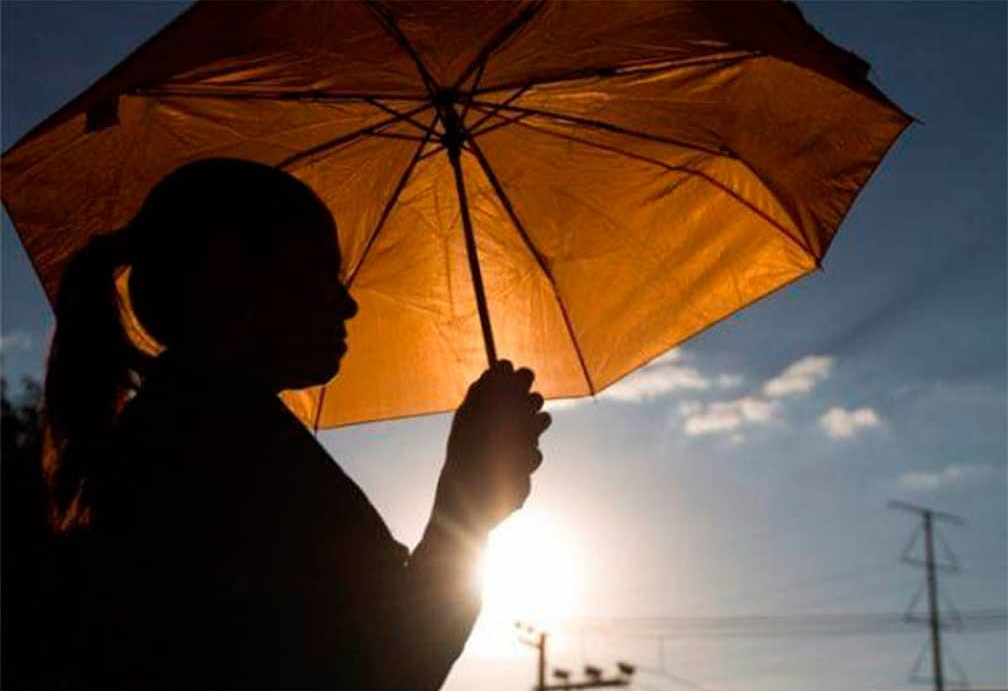
Spain registered a record-breaking temperature of 46°C (114.8°F) on Saturday, June 28, in El Granado, Huelva — a southern town near the Portuguese border — marking the highest temperature ever recorded in June in the country, according to Spain’s national meteorological agency, Aemet.
The temperature was officially recorded at 4:40 p.m. local time, surpassing the previous June record of 45.2°C (113.4°F)set in Seville back in 1965, also in the Andalusia region.
Like many parts of Southern Europe, Spain is experiencing a severe heatwave, with large areas of the country facing temperatures above 40°C even though summer has just begun.
As one of Europe’s countries most vulnerable to climate change, Spain has endured its three hottest years on recordfrom 2022 to 2024, marked by repeated heatwaves and temperature extremes.
Climate scientists have long warned that global warming is amplifying the intensity, frequency, and duration of extreme weather events such as heatwaves and droughts — trends now evident across the Iberian Peninsula and the broader Mediterranean region.
International
Trump administration sues Los Angeles over sanctuary city policies
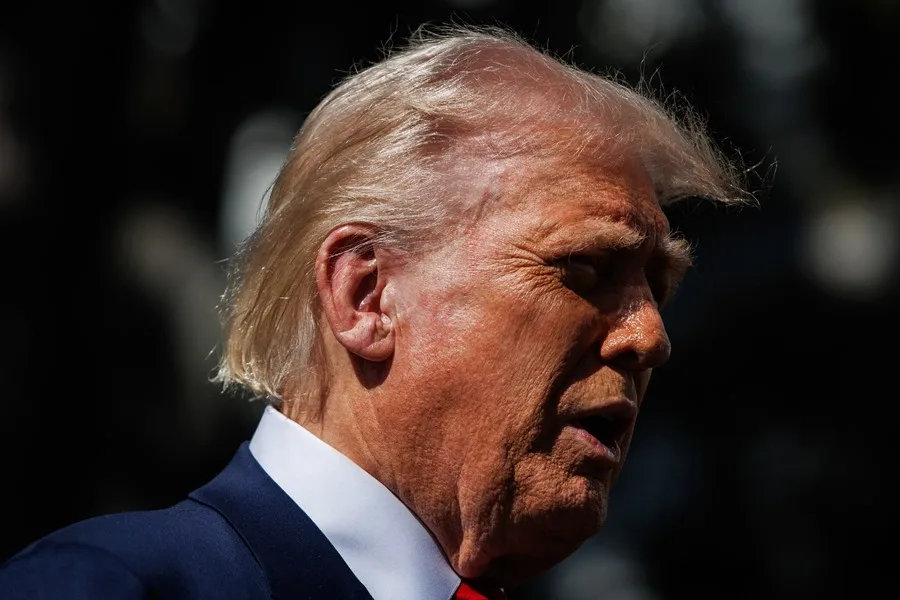
The Republican administration of Donald Trump filed a lawsuit on Monday against Los Angeles officials, challenging the city’s sanctuary policies as illegal amid an intensifying federal immigration crackdown.
The Department of Justice accused the Democratic-led city of interfering with federal immigration enforcement, arguing that its sanctuary policies have contributed to “violence, chaos, and attacks on law enforcement” recently seen in Los Angeles.
“The sanctuary city policies were the cause of violence, chaos, and attacks on law enforcement that Americans recently witnessed in Los Angeles,” said Attorney General Pamela Bondi in an official statement.
The lawsuit, filed in a California federal court, names Mayor Karen Bass, City Council President Marqueece Harris-Dawson, and the entire City Council as defendants.
While Los Angeles had long been considered a sanctuary city for immigrants, the City Council officially adopted the designation through a municipal ordinance in November last year, following Trump’s election to the presidency.
The legal action seeks to limit local authorities’ cooperation with federal immigration agents under Trump’s policies.
With over one-third of its population being immigrants, Los Angeles has become a flashpoint in the battle against Trump’s anti-immigration agenda, which began with his campaign promise to deport millions.
Tensions in the city escalated earlier this month after an increase in workplace immigration raids, sparking mass protests downtown. The situation further intensified when Trump overrode California Governor Gavin Newsom and ordered the deployment of thousands of National Guard troops and 700 U.S. Marines to the area.
-
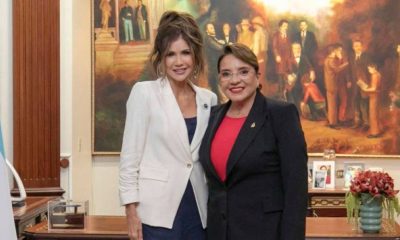
 Central America4 days ago
Central America4 days agoHonduras and U.S. strengthen cooperation on migrant rights and border security
-
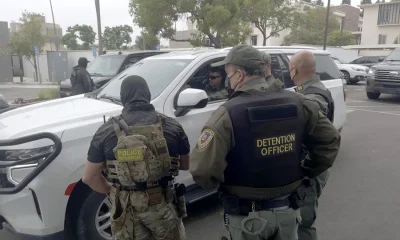
 International4 days ago
International4 days agoWhite House claims challenged as most ICE arrests in LA involve non-criminals
-
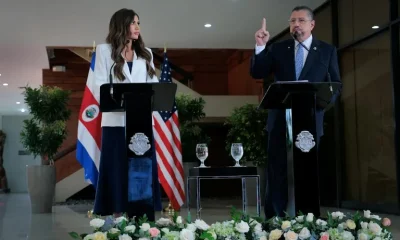
 Central America5 days ago
Central America5 days agoKristi Noem discusses border security, migration, and TPS in Honduras
-
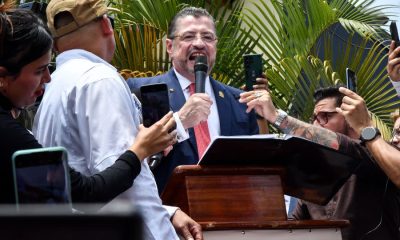
 Central America5 days ago
Central America5 days agoCosta Rican President accuses Electoral Tribunal of censorship ahead of october elections
-

 Central America5 days ago
Central America5 days agoPanama Canal traffic surges 30% in early fiscal 2025 amid recovery
-
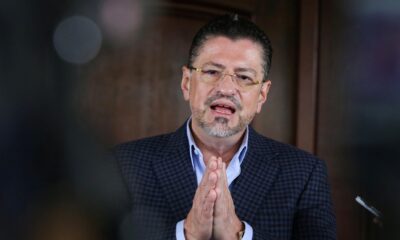
 Central America4 days ago
Central America4 days agoCosta Rican president Rodrigo Chaves faces new campaign finance accusation amid political tensions
-
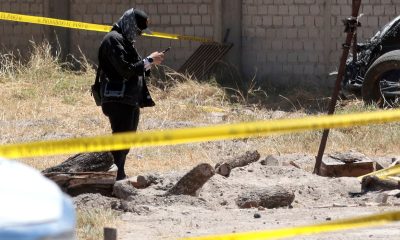
 Internacionales3 days ago
Internacionales3 days agoJalisco’s grim discovery: drug cartel mass grave found in construction site
-
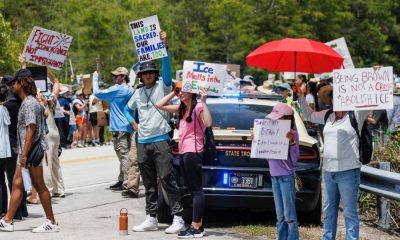
 International2 days ago
International2 days agoProtests erupt over Florida’s ‘Alligator Alcatraz’ migrant jail in the Everglades
-
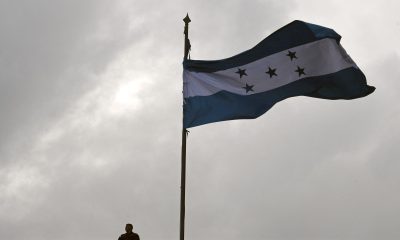
 Central America3 days ago
Central America3 days agoHonduras secures IDB loan to improve access and quality of education in vulnerable areas
-
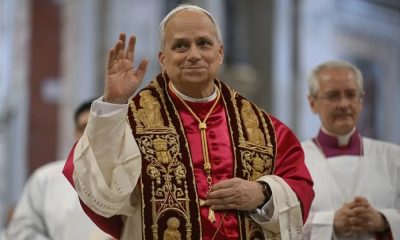
 International4 days ago
International4 days agoPope Leo XIV calls for fraternal priesthood, rejecting individualism
-
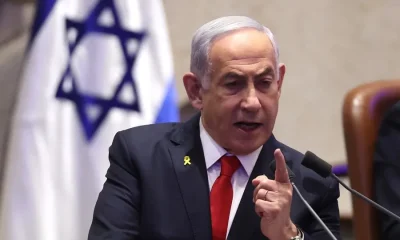
 International4 days ago
International4 days agoNetanyahu and Trump vow to expand “Circle of Peace” amid Middle East ceasefire
-
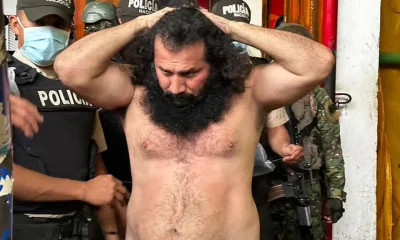
 International5 days ago
International5 days agoEcuador’s most wanted criminal ‘Fito’ recaptured and set for extradition
-
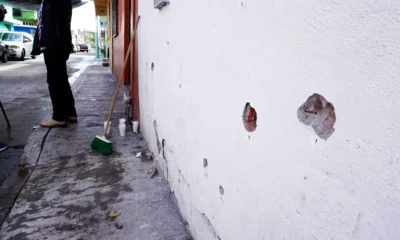
 International5 days ago
International5 days agoGunmen attack San Juan celebration in Guanajuato, leaving 11 dead
-

 International3 days ago
International3 days agoU.S. targets families of sanctioned drug traffickers with new Visa restrictions
-

 International1 day ago
International1 day agoTikTok sale advances as Trump reveals deal is in place
-
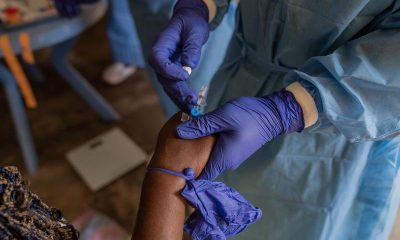
 International4 days ago
International4 days agoMpox cases decline in Africa as vaccination efforts continue
-
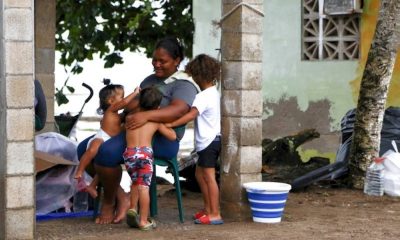
 Central America2 days ago
Central America2 days agoMigrants stranded in Panama amid US Policy crackdown and Darién gap barriers
-
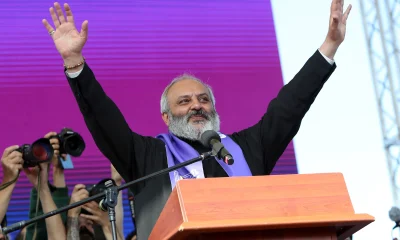
 International5 days ago
International5 days agoArmenian cleric accused of plotting bombings to overthrow government
-

 International4 days ago
International4 days agoHeat dome to bring record-breaking temperatures across southwestern Europe
-
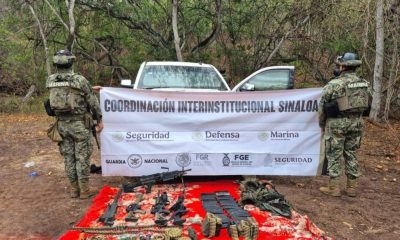
 International4 days ago
International4 days agoMexican authorities arrest 17 linked to ‘Mayos’ Cartel in major operations across Sinaloa
-
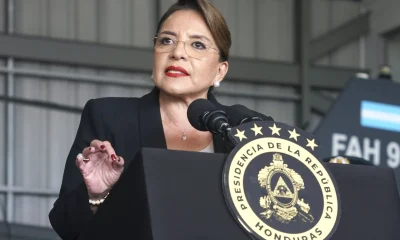
 Central America1 day ago
Central America1 day agoCastro to address FfD4 in Spain as Global Financial Reform takes center stage
-
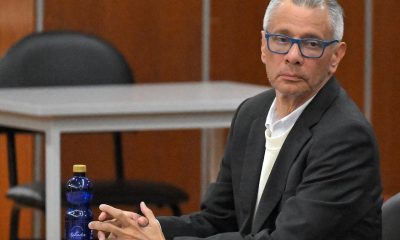
 International3 hours ago
International3 hours agoEcuador’s former VP Jorge Glas sentenced to 13 more years for corruption
-

 International3 hours ago
International3 hours agoTrump administration sues Los Angeles over sanctuary city policies
-
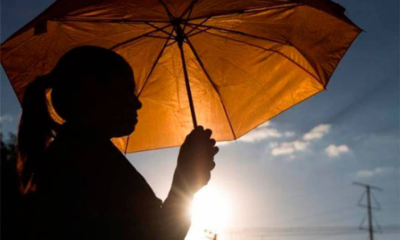
 International3 hours ago
International3 hours agoSpain hits record 46°C in June amid scorching heatwave
-
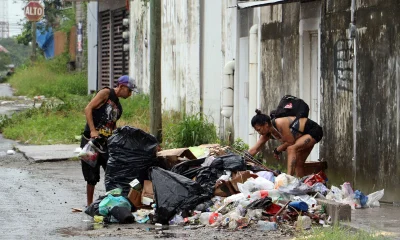
 International3 hours ago
International3 hours ago7 in 10 mexicans born poor stay poor, new report finds























